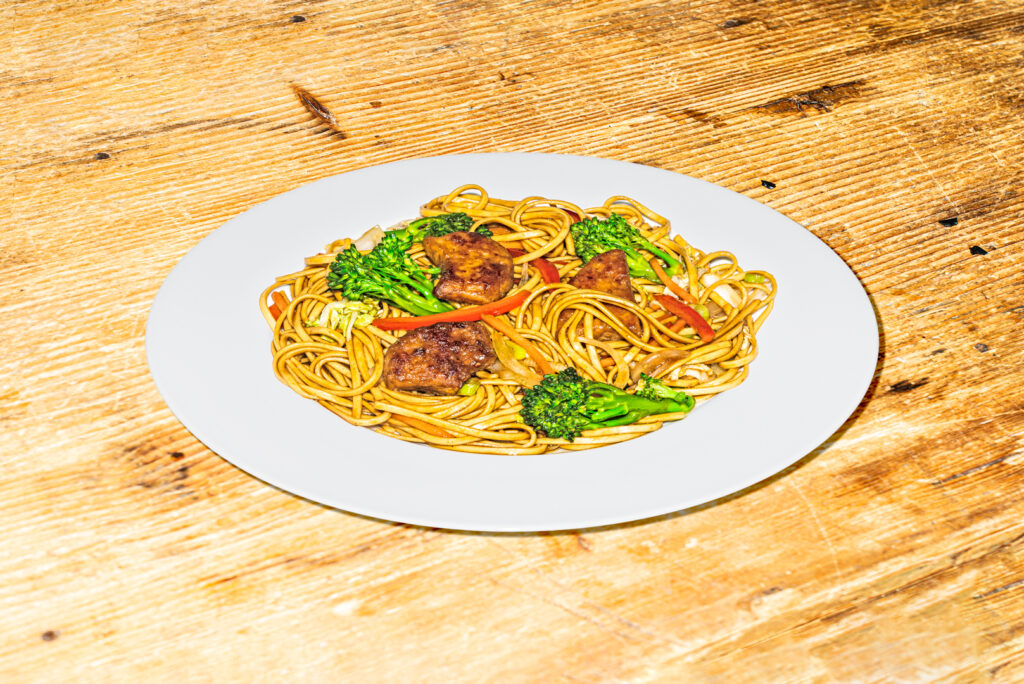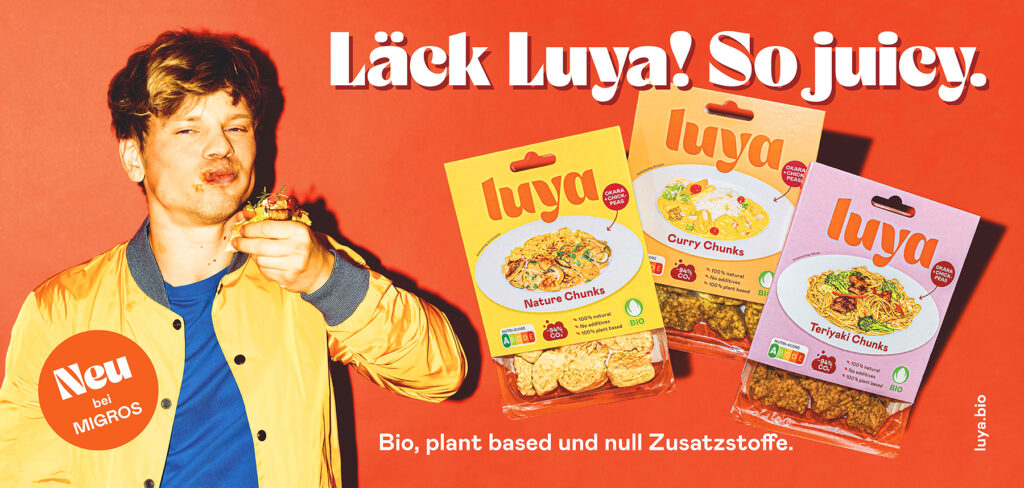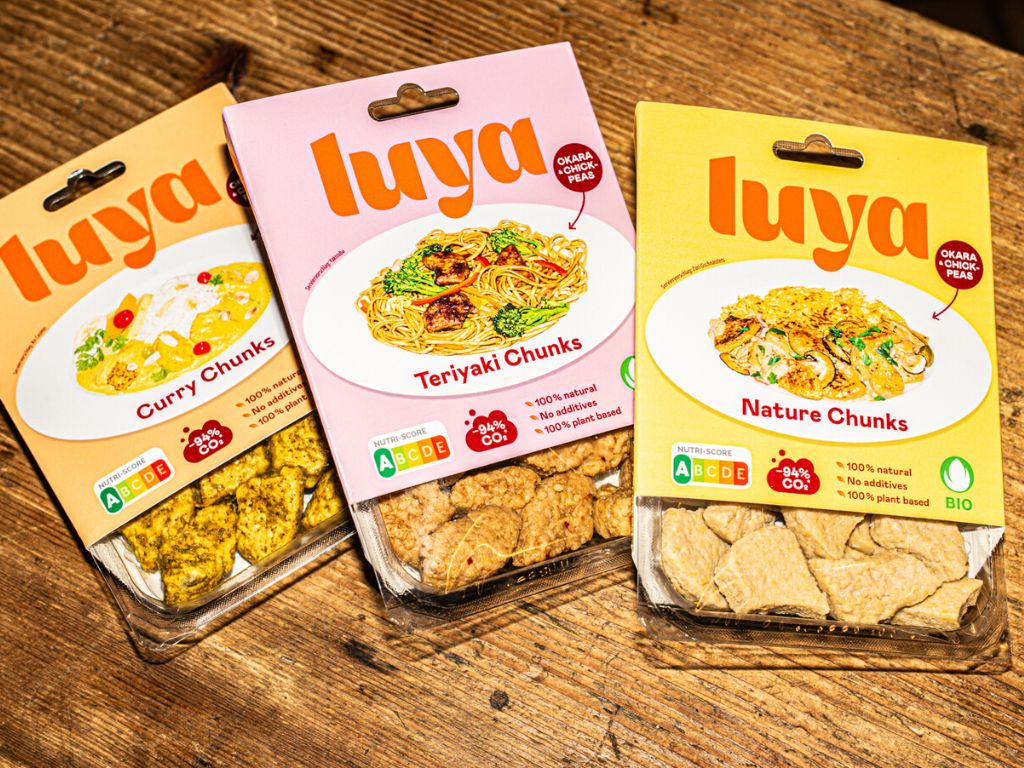The Soy Milk Waste Market Is About to Have a Plant Protein Moment
3 Mins Read
As Luya Foods brings its vegan meat made from soy milk waste to the largest Swiss retailer, Migros, a Singapore startup secures funding to expand its soy milk waste production.
Swiss-based Luya Foods says its new marinated vegan meat brings authentic flavors to home chefs “for anyone looking for a healthy and sustainable alternative” to conventional meat. Luya cites the juicy texture of its new products as being perfect for marinating and seasoning. The new offerings include Teriyaki, Curry, and Nature Chunks.
Luya upcycles organic okara — the by-product from tofu and soymilk production — in its vegan meat, which is also made from mycelium and chickpeas. It says more than 14 million tons of okara are wasted globally every year.
Mycelium-based and minimal ingredients
Luya, a 2021 spin-off of the Bern University of Applied Sciences, says it is on a mission to create a new generation of alternative protein using a patent-pending proprietary mycelium fermentation platform.

The new products come as Luya’s pilot plant in Bern readies to go live; it will expand the brand’s fermentation capacity and build a fully automated processing line. “With the new line throughput will be drastically increased and the production capacity for growth plans in 2023 and 2024 will be secured”, said co-founder Tobias Kistler. The new facility will help the brand expand its product offerings.
According to Luya, it has earned support from professional chefs as well as home cooks. For them, the quality lies in the purity of the product — all-natural ingredients that are free from additives.
“We have spoken to a lot of consumers after our retail launch in May 2022 to understand how Luya is perceived and have incorporated the consumer feedback in the design update of our packaging”, co-founder Flavio Hagenbuch said in a statement.
An assessment conducted by the independent sustainability consulting firm Eaternity found Luya’s production reduces CO2 by 94 percent compared with conventional beef. Water usage is reduced by more than 53 percent. Luya is one of only a handful of companies to receive the coveted three-star label from Eaternity for its outstanding environmental record.
Soy milk waste market
The news comes as Singapore-based SoilLabs raises $370,000 USD in Seed funding from Japan’s Sanyo Chemical and Singapore’s Hafnium Ventures to expand its okara protein.

“The funding gives us a strong platform for both the commercialisation of our current technologies and building a strong pipeline of complementary technologies and end product applications,” Mauro Catellani, CEO of SoiLabs said in a statement.
SoilLabs uses okara in cheese and soup products. It recently signed an MOU with Sanyo Chemical for product development in Japan.
“With Sanyo’s investment, it also brings with it a close collaboration with a strong industrial player and we look forward to working in partnership with them as we develop the Japanese market,” Catellani said.
“As a business, a key part of our strategy is on sustainability and in supporting value creation in local industries,” said Sanyo’s President and CEO Akinori Higuchi. “SoiLabs’ recycling of soy processing waste into value-added products is completely aligned with this strategy. In addition, it gives us the opportunity to bring added value to the soy processing industry both near our home base in Kyoto and throughout Japan.”



